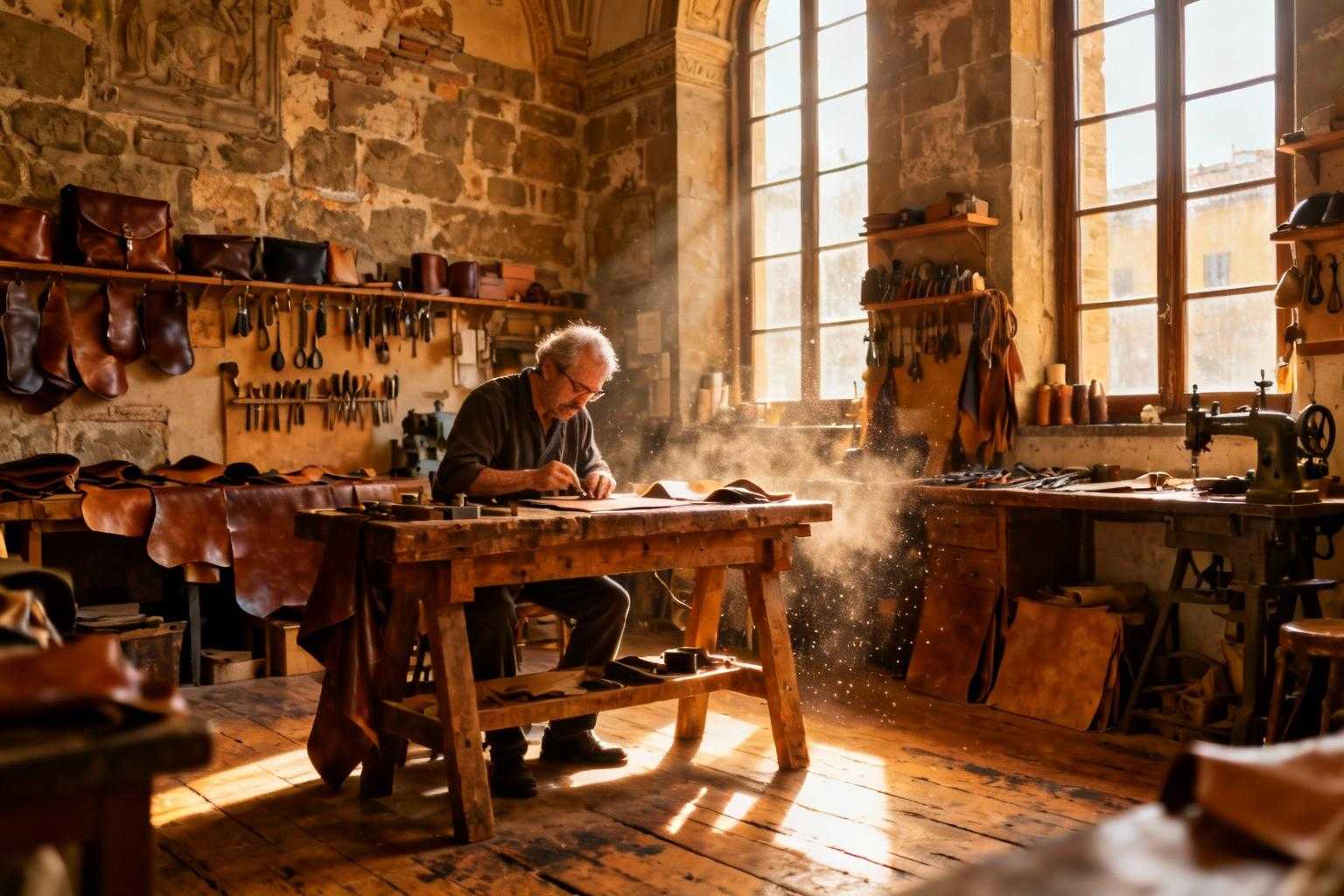In Florence’s winding medieval streets, behind weathered wooden doors and ivy-covered courtyards, something extraordinary happens that exists nowhere else on Earth. This is the only city where Renaissance masters still teach their craft in the same workshops that have operated continuously for over 500 years.
While millions flock to the Uffizi to glimpse Renaissance masterpieces behind glass, few discover that the techniques used to create those treasures are still being practiced daily by master artisans whose families have guarded these secrets for generations. In Florence’s historic Oltrarno district, the Renaissance never ended.
These aren’t tourist demonstrations or museum exhibits. These are living workshops where authentic craftsmen shape gold using Benvenuto Cellini’s lost-wax casting methods, bind books with techniques unchanged since the Medici era, and create intricate scagliola inlays that once adorned palaces across Europe.
The secret workshops hidden from mass tourism
Ancient guilds that never disbanded
Behind unmarked doors in the Oltrarno, master goldsmiths still practice Florentine filigree, transforming precious metals into lace-like beauty through techniques passed down directly from Renaissance guild masters. These workshops operate under the same apprenticeship system established in the 15th century, where knowledge flows from master to student through years of patient observation.
Scagliola masters preserving Medici secrets
In dusty ateliers filled with colored powders and ancient tools, artisans create faux marble inlay using scagliola techniques once exclusively reserved for Medici palaces. This Florentine craft, which decorated noble residences worldwide, survives in only a handful of workshops where masters guard formulas that took generations to perfect.
Authentic experiences unavailable anywhere else
The legendary Scuola del Cuoio
Within the Santa Croce complex, the School of Leather continues teaching Renaissance leatherworking in workshops where the rich aroma of tanned hides fills rooms lined with centuries-old tools. Here, master craftsmen demonstrate cutting, stitching, and embossing techniques that have remained unchanged since Florence supplied leather goods to European nobility.
Ceramics workshops with Renaissance bloodlines
At workshops like Bottega di Fiorenza, ceramic masters whose family trees trace back to Renaissance pottery guilds welcome visitors into spaces where wheels turn and kilns fire using methods their ancestors perfected. The clay responds to hands that carry genetic memory of centuries-old techniques.
Living traditions that transform visitors
Bookbinding ateliers with golden secrets
In cramped workshops filled with antique presses and marbled papers, master bookbinders demonstrate gold leaf embossing using hand-cut tools crafted by their grandfathers. Visitors watch spellbound as blank leather transforms into ornate volumes using techniques that bound books for Renaissance scholars and philosophers.
Restoration masters preserving immortal art
Within conservation workshops, skilled artisans continue the sacred work of preserving frescoes and paintings using Renaissance restoration methods. Every brushstroke connects the present to history, maintaining artworks that have witnessed the rise and fall of empires while teaching visitors the patience required for true mastery.
Why Florence remains the world’s only Renaissance workshop city
Unbroken cultural continuity spanning centuries
Unlike other European cities where industrialization destroyed traditional crafts, Florence’s artisan community survived through family workshops that never closed their doors. Political upheavals, economic changes, and world wars couldn’t break the chain of knowledge that flows from master to apprentice in workshops that occupy the same medieval buildings for generations.
The Oltrarno sanctuary protecting ancient knowledge
The historic Oltrarno district functions as a living museum where artisans work in their ancestors’ footsteps. These narrow streets protect workshops from mass tourism while maintaining authentic environments where true craftsmanship flourishes away from commercial pressures that have corrupted artisan traditions elsewhere.
Florence offers more than museum visits and cathedral tours. Here, visitors connect directly with Renaissance creativity through workshops where master artisans share 500-year-old secrets with anyone willing to appreciate the patience, skill, and dedication required for authentic craftsmanship.
In an age of mass production, Florence’s workshops celebrate the enduring power of human touch, tradition, and the Renaissance spirit that continues beating in every hammer’s tap and painter’s careful stroke. This is where true luxury lies not in speed, but in care, heritage, and timeless European craftsmanship traditions that survive nowhere else on Earth.
